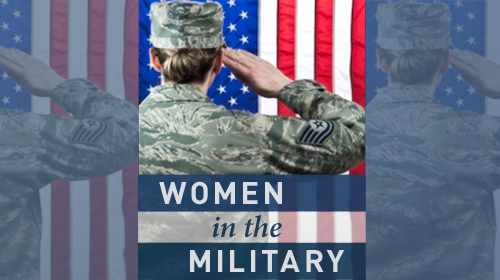
This Veterans’ Day, we thank our service men and women for their dedication, and we celebrate the strides our country has made towards greater equality in the armed forces. In a number of areas, we have made tremendous progress toward the principle that every member of our society– regardlessof sex and regardless of sexual orientation -- should have the opportunity to undertake one of the most courageous responsibilities of citizenship. Yet, challenges remain that undermine the ideal of a society of equals.
- Military abortion ban: Despite the high numbers of women serving in the armed forces, including in combat zones, federal law treats those soldiers unequally when it comes to reproductive health care. Women are prevented from using military health insurance to cover the cost of abortion care, except in cases where their lives are in danger.They cannot even get coverage if the pregnancy is the result of rape or incest, despite the alarming rate of sexual assault in the military. Moreover, even if a servicewoman needs an abortion to protect her health or if her fetus has no hope of survival, she is prohibited even from using her own money to pay for abortion care at military medical facilities. This facilities ban is not only unfair, but it endangers the health of women stationed abroad in countries where abortion is unsafe.
- Don’t Ask Don’t Tell: The repeal of the discriminatory and harmful “Don’t Ask Don’t Tell” law will be remembered as a great 2011 victory for equality. But the legacy of this discrimination is not yet gone – veterans who were discharged for “homosexuality” receive only half of the separation pay to which they are entitled. Additionally, a recent federal rule to provide federal employees up to 12 work weeks of unpaid leave when a spouse, son, daughter or parent is serving on active duty or has been notified of an impending call or order to active duty status will not include those with a same-sex spouse because of the discriminatory and unconstitutional Defense of Marriage Act (DOMA). It is a strange and sad irony that DADT's demise has allowed lesbian, gay and bisexual service members to serve their country openly and honestly; and yet, because of DOMA, the married same-sex spouses of these service members who are federal employees can be denied something as basic as the ability to use FMLA time to take part in family support services.
- Military sexual trauma: Tens of thousands of service members each year are estimated to have experienced some form of military sexual trauma (MST). These acts occur nearly twice as often within military ranks as they do within civilian society. The ACLU is working to uncover the true scope of the problem and the military’s efforts to address it.
- Sex discrimination in military policies: Decades ago, the ACLU led the way in eradicating some of the discriminatory laws and policies that kept women from serving equally alongside their male counterparts. We successfully challenged a law keeping women from serving in the Navy on seagoing vessels, and differential education requirements for men and women. Both in that era and more recently, we challenged policies requiring automatic discharge of pregnant servicemembers. Today, women are still excluded from assignments to certain units because of combat exclusion policies, even though numerous recent reports document the fact that, in reality, women are exposed to combat and serve with distinction.
In all of these areas, some progress has been made but more progress is needed. The ACLU will continue to work with our men and women in uniform to ensure greater opportunity, equality and fairness in our armed forces.


